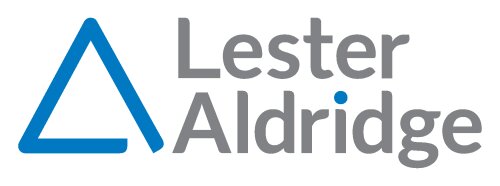Best Restructuring & Insolvency Lawyers in Bournemouth
Share your needs with us, get contacted by law firms.
Free. Takes 2 min.
List of the best lawyers in Bournemouth, United Kingdom
About Restructuring & Insolvency Law in Bournemouth, United Kingdom
Restructuring and Insolvency law in Bournemouth, United Kingdom, is a specialized legal area focused on helping individuals and businesses who are experiencing financial hardship. Bournemouth, as a vibrant economic center in Dorset, hosts numerous small and medium-sized businesses, making restructuring and insolvency an important legal field in the area. Legal professionals assist with everything from formal insolvency procedures like liquidations and bankruptcies to negotiated restructurings between creditors and debtors. The aim of this legal field is often to rescue a viable business, protect the rights of creditors, and ensure fair treatment for all stakeholders under the law.
Why You May Need a Lawyer
There are many situations where seeking legal advice in restructuring and insolvency is essential. Common scenarios include:
- Your business is facing cash flow problems and you are unsure of your options for continuing operations.
- You are being threatened with bankruptcy or winding up proceedings by creditors.
- You are a creditor who is struggling to recover debt from an insolvent individual or business.
- You have received a statutory demand or a winding up petition.
- You are considering voluntarily closing your business through liquidation or administration.
- You are a director concerned about personal liability for company debts.
- You need to negotiate with creditors to restructure existing debts.
- You want to protect your personal assets during a business insolvency.
- You need guidance on formal insolvency procedures and compliance with local regulations.
Legal advice can help you understand your rights, responsibilities, and the most appropriate strategy for your situation, whether you are an individual, a director, or a creditor.
Local Laws Overview
Restructuring and insolvency matters in Bournemouth, as in the rest of England and Wales, are governed primarily by the Insolvency Act 1986 and associated regulations. Some of the key procedures and laws relevant to Bournemouth include:
- Administration: A process where an appointed administrator takes over the company with the aim of rescuing it or achieving a better result for creditors than immediate liquidation.
- Liquidation: This can be voluntary or compulsory, leading to the closure of the company and distribution of its assets.
- Bankruptcy: Refers to the insolvency process for individuals, resulting in the distribution of their assets to settle debts.
- Company Voluntary Arrangement (CVA): An agreement between a company and its creditors to pay off debts over time.
- Individual Voluntary Arrangement (IVA): Similar to a CVA, but for individuals.
- Director Duties: Directors must act in the best interests of creditors once a company is insolvent. Failure to do so may result in personal liability.
- Preferential and Transaction at Undervalue Clauses: Transactions made prior to insolvency can be challenged if deemed unfair or detrimental to creditors.
These procedures are overseen by courts and local insolvency practitioners. Bournemouth’s business community also interacts closely with the local County Court and The Insolvency Service.
Frequently Asked Questions
What is the difference between bankruptcy and insolvency?
Bankruptcy is a legal process applied to individuals who cannot pay their debts, leading to the distribution of assets among creditors. Insolvency is a broader term that describes the situation where a person or business cannot pay debts as they fall due or their liabilities exceed their assets.
When should I seek advice from a restructuring and insolvency lawyer?
You should seek legal advice as soon as you recognize financial difficulties, especially if you are struggling to pay creditors, receive legal notices like statutory demands, or anticipate possible insolvency.
What happens if my company cannot pay its debts?
If your company cannot pay its debts, you may need to consider formal insolvency procedures such as administration or liquidation. Directors have specific legal duties, so immediate legal advice is essential.
What options are available to avoid liquidation?
Options may include negotiating payment plans with creditors, entering into a Company Voluntary Arrangement, restructuring loans, or administration. Every scenario is different and professional advice will help identify the best route.
What is a statutory demand?
A statutory demand is a formal request for payment of a debt. If it is not paid within 21 days, the creditor can apply to the court to wind up a company or make an individual bankrupt.
Am I personally liable for my company’s debts?
Generally, directors are not personally liable for company debts. However, if you have given personal guarantees or traded while insolvent, you may be at risk. Legal advice is crucial in these cases.
How long does bankruptcy last?
Bankruptcy usually ends after 12 months but can be extended in cases of non-cooperation or if income payment orders are made.
Can I start a new business if I have been made bankrupt?
You can trade while bankrupt, but there are restrictions. For instance, you cannot become a company director without court permission, and trading under a new name must follow legal guidelines.
What assets are protected during insolvency?
Some assets may be protected, such as basic household goods or tools essential for your work. However, most significant assets may be sold to repay creditors.
Where are insolvency cases handled in Bournemouth?
Insolvency matters are generally processed through the Bournemouth County Court and local branches of The Insolvency Service.
Additional Resources
Several organizations and resources are available to assist those experiencing financial difficulties or requiring advice in Bournemouth:
- The Insolvency Service: A government agency providing guidance on personal and corporate insolvency, including official forms and advice.
- CITIZENS ADVICE BUREAU (CAB): Offers free, confidential, and impartial advice on debt and insolvency for individuals and businesses.
- Insolvency Practitioners Association (IPA): Provides a directory of registered insolvency practitioners who can offer guidance and handle formal procedures.
- Law Society of England and Wales: Find local solicitors experienced in restructuring and insolvency law.
- Business Debtline: A charity offering free advice on business debt and insolvency issues.
Next Steps
If you suspect that you or your business may be facing insolvency, the most important step is to seek prompt legal advice. Here is how you can proceed:
- Assess your financial situation and gather relevant financial documents.
- Contact a lawyer or insolvency practitioner in Bournemouth who specializes in restructuring and insolvency law.
- Discuss your situation openly and honestly to explore all potential options, including restructuring, voluntary arrangements, or formal insolvency processes.
- Follow your lawyer’s recommendations and ensure you comply with all legal obligations and deadlines.
- Utilize support from local organizations, such as Citizens Advice or Business Debtline, for additional guidance.
Every case is unique, so tailored legal advice is critical. Early action can often yield better outcomes and may help avoid the most severe consequences of financial distress.
Lawzana helps you find the best lawyers and law firms in Bournemouth through a curated and pre-screened list of qualified legal professionals. Our platform offers rankings and detailed profiles of attorneys and law firms, allowing you to compare based on practice areas, including Restructuring & Insolvency, experience, and client feedback.
Each profile includes a description of the firm's areas of practice, client reviews, team members and partners, year of establishment, spoken languages, office locations, contact information, social media presence, and any published articles or resources. Most firms on our platform speak English and are experienced in both local and international legal matters.
Get a quote from top-rated law firms in Bournemouth, United Kingdom — quickly, securely, and without unnecessary hassle.
Disclaimer:
The information provided on this page is for general informational purposes only and does not constitute legal advice. While we strive to ensure the accuracy and relevance of the content, legal information may change over time, and interpretations of the law can vary. You should always consult with a qualified legal professional for advice specific to your situation.
We disclaim all liability for actions taken or not taken based on the content of this page. If you believe any information is incorrect or outdated, please contact us, and we will review and update it where appropriate.









